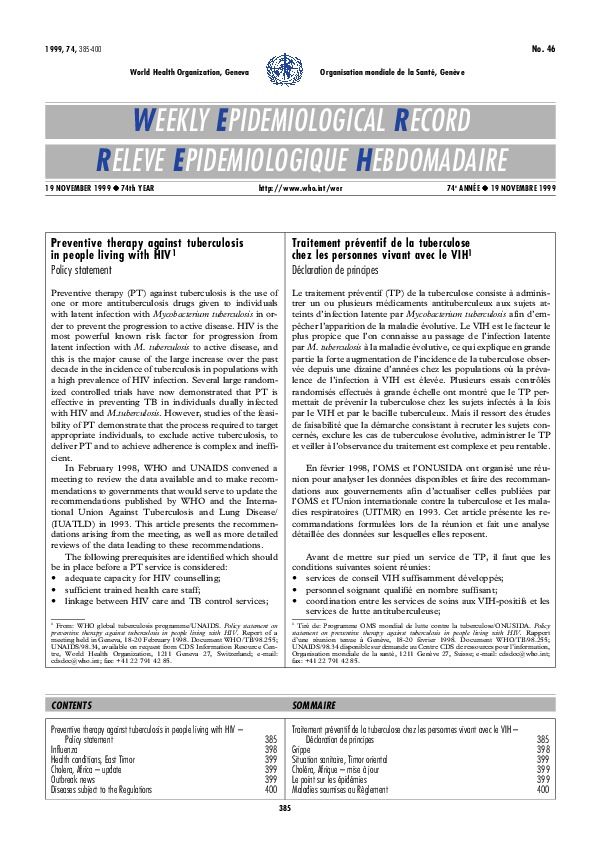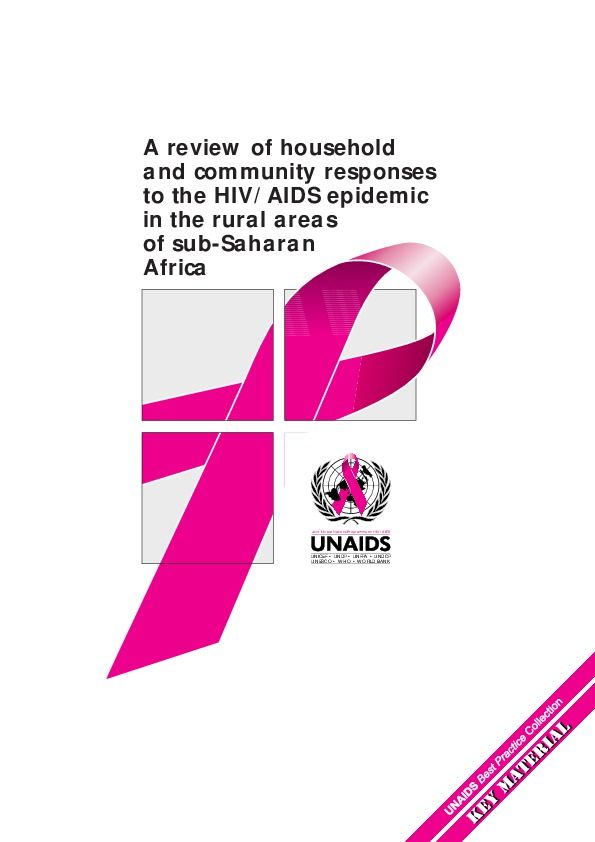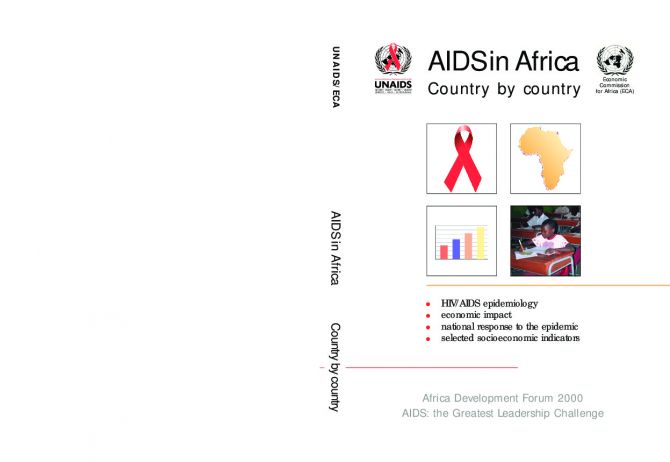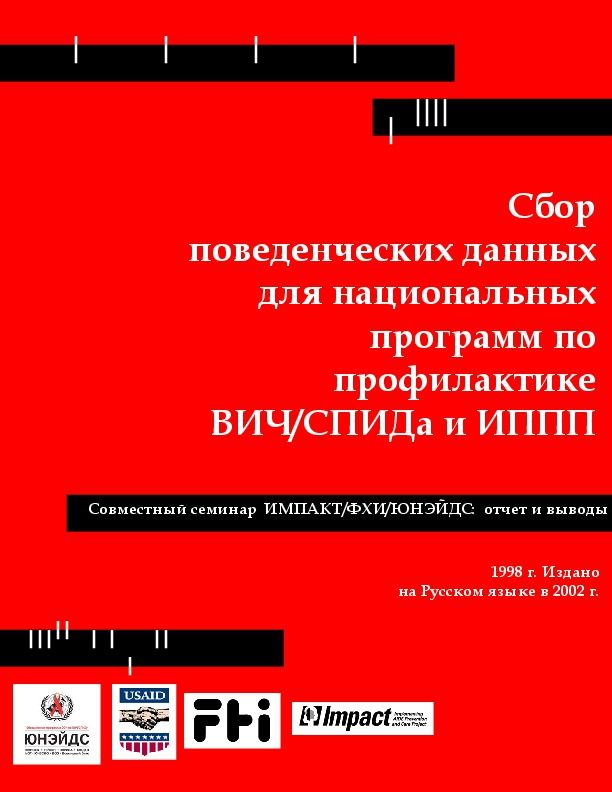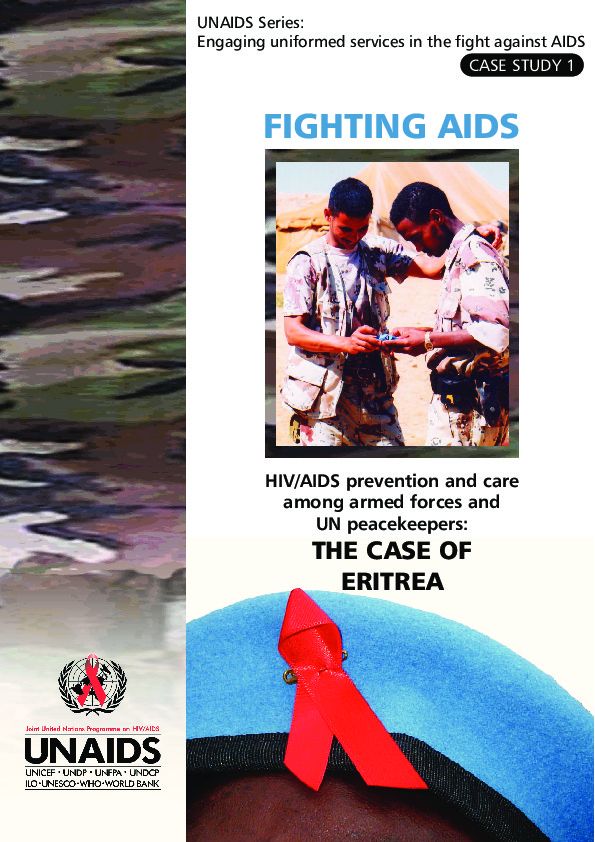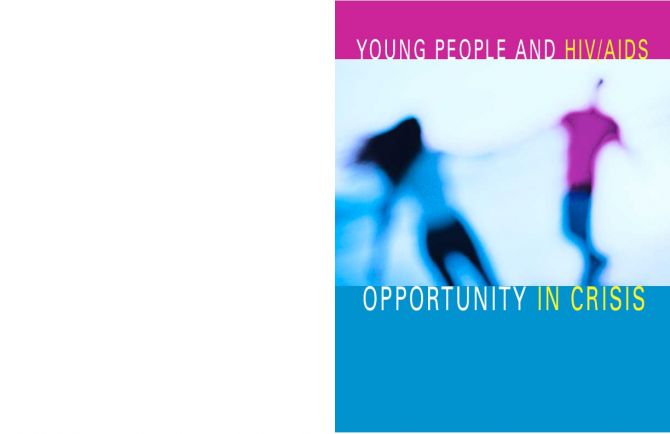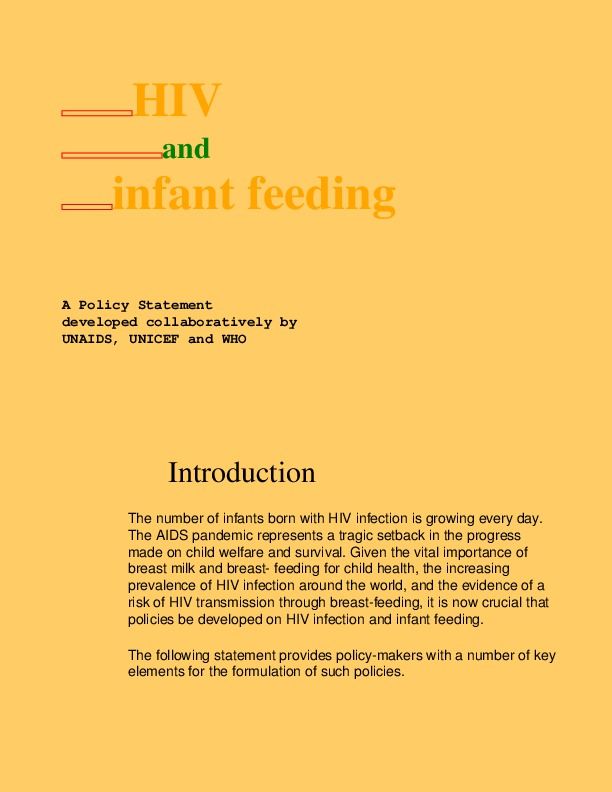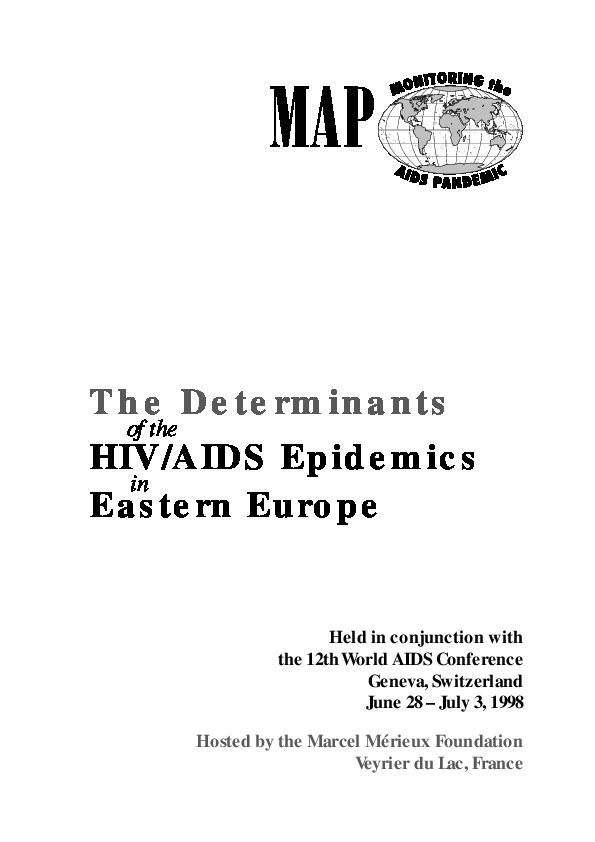Documents
A review of household and community responses to the HIV/AIDS epidemic in the rural areas of sub-Saharan Africa
20 октября 2000 года.
Documents
AIDS in Africa country by country : Africa development forum 2000, HIV/AIDS epidemiology, economic impact, national response to the epidemic, selected socioeconomic indicators
31 октября 2000 года.
As a resource for the delegates at this African Development Forum 2000 devoted to the topic of HIV/AIDS, UNAIDS is pleased to provide the following country profiles. Together, the profiles help to paint a picture of the current state of the HIV epidemic in Africa, its impact on the social and economic fabric, and the response thus far of the African nations to the unprecedented crisis caused by HIV/AIDS. For the selected indicators used, they are as complete a compilation as possible, given the available data from the African countries and from UNAIDS and WHO sources. Additional information on AIDS in Africa is available from the UNAIDS Web site (www.unaids.org) and other sources, including the bibliographical references contained in this document.
Documents
Accelerating action against AIDS in Africa
10 сентября 2003 года.
This report provides a snapshot of the action being taken across the African continent in response to the challenge of AIDS. It highlights governments working with all their ministries to deliver a full-scale response. It demonstrates progress in closing the gaps in the provision of HIV prevention and treatment. It shows the value of partnership between government, communities and businesses. It showcases the determination of African women to throw off the disproportionate burden that AIDS represents for them. And it makes manifest the voice of hope, in the many successful responses by young people in fighting the epidemic.
Documents
Fighting AIDS: HIV/AIDS prevention and care among armed forces and UN peacekeepers. The case of Eritrea
25 сентября 2003 года.
Documents
Young people and HIV/AIDS : Opportunity in crisis
07 октября 2003 года.
This report contains important new data about why young people are key to defeating the global HIV/AIDS epidemic, including results from more than 60 new national surveys. It reaffirms that we must accord top priority to making investments in the well-being of young people and to engaging them in the fight against HIV/AIDS.
Documents
HIV and infant feeding : a policy statement developed collaboratively by UNAIDS, UNICEF and WHO
05 ноября 2003 года.
The number of infants born with HIV infection increases every day. The vast majority of these children are infected through their mothers. Given the vital importance of breastfeeding to a child’s health, and the risk of HIV transmission through breastfeeding, the development of policies on HIV infection and infant feeding is crucial. This document provides policy-makers with key elements for the creation of the aforementioned policies, such as promoting and supporting breastfeeding, improving access to HIV counselling and testing, and preventing commercial pressures for artificial feeding. It also highlights the prevention of HIV infection in women through the promotion of safer sex and the adequate treatment of sexually transmitted infections
Documents
Cost-effectiveness analysis and HIV/AIDS
29 декабря 2004 года.

